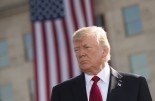Harry Geels: The three biggest dangers of Trump's BBB
Harry Geels: The three biggest dangers of Trump's BBB

This column was originally written in Dutch. This is an English translation.
By Harry Geels
Trump has once again demonstrated his ability to get things done. After enforcing the NATO spending target of 5% of GDP, his Big Beautiful Bill was passed by Congress. The new law could work, but it is also a dangerous game for three reasons. Meanwhile, the stock markets seem to be benefiting.
On 4 July, President Trump signed his long-awaited Big Beautiful Bill (BBB). The bill provides for substantial tax cuts and new government spending, including on border security ($178 billion), immigration enforcement (ICE: $30 billion) and defence ($153 billion extra). Trump is thus once again delivering on his election promises and appears to be giving the economy a boost. But it is also a risky experiment, with at least three major economic risks.
1) Further increase in public debt
The BBB includes major tax cuts, especially for the wealthy and corporations. Together with the aforementioned spending, this means that public debt will increase by around $3 trillion to $5 trillion over the next ten years. According to The Economist, interest payments on public debt are set to rise to 6% of GDP over the next 25 years, double the previous record set in 1991. The biggest dangers here are “policy exhaustion” (the inability to provide further stimulus in the event of new crises) and damage to the US government's reputation as a reliable creditor.
Figure 1: Interest payments as a percentage of US GDP

Source: The Economist
2) Inflation
A second danger is that the many additional expenditures (and tax cuts) will lead to inflation, especially in sectors where supply is difficult to expand. In addition, wage inflation is a threat if immigration is significantly restricted. After all, fewer workers will put pressure on a labour market that is already tight in certain sectors. AI could offer a solution, as it automates jobs or work. However, we must seriously consider the possibility of structurally higher inflation, especially as this would also ease the burden of government debt and inflation is therefore a deliberate by-product of policy.
3) Erosion of human capital and social cohesion
The third danger is that the lower echelons of American society could experience greater financial problems, for example as a result of cuts to Medicaid, which are estimated to leave between 10 and 12 million Americans uninsured. There are also cuts to poverty reduction and education. This could put even more pressure on social cohesion in the US and further increase polarisation. Paradoxically, the BBB also affects part of Trump's support base, although Republicans will argue that higher economic growth will improve the position of all Americans.
Consequences for investors
The US stock markets rallied strongly in the run-up to and around the adoption of the BBB. In fact, the major correction resulting from the trade tariffs has already been recouped. Apparently, equity investors view the BBB as positive. This is understandable given all the extra spending, partly through government investment and partly through additional spending by middle and higher income groups. Both the lower costs for businesses and the weaker dollar are helping the profits of US companies, especially those with international operations.
We have to paint a more negative picture for (government) bonds. Real yields are and are likely to remain low. Trump is also trying to push down (official) interest rates by putting considerable pressure on the Fed, although the capital markets may have other ideas. Incidentally, US bonds still offer positive real interest rates across the board, which is not the case for many European bonds. We may find the BBB bizarre here, but the US capital markets continue to function more efficiently than their European counterparts.
Investors or European companies that want to exclude America or do less business there would therefore be wise to think twice about such actions. Europe is not exactly winning any prizes either, especially when we consider the high level of bureaucracy (which affects the tech sector), the lack of energy autonomy, the deliberate financial repression (or rather, the financial euthanasia of savers and bond investors), the high taxes and the still highly fragmented labour and capital markets, including the local protection of their own banking oligopolies.
Excluding the US is therefore not an option. Yes, dangerous games are being played with all these extra expenditures and tax breaks (especially for wealthier Americans), but it could also (partly) turn out well. There are no real alternatives (yet), at least not on a large scale.
This article contains the personal opinion of Harry Geels










